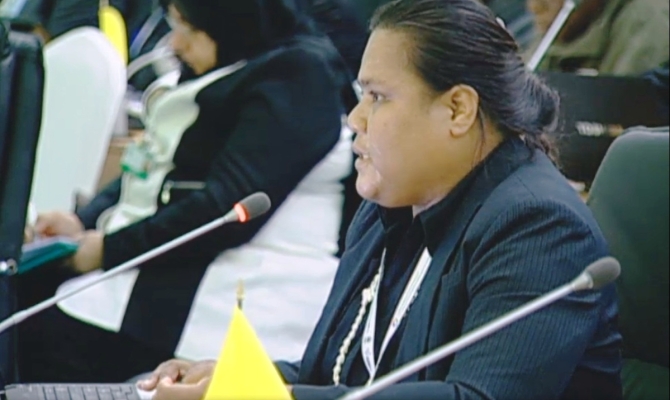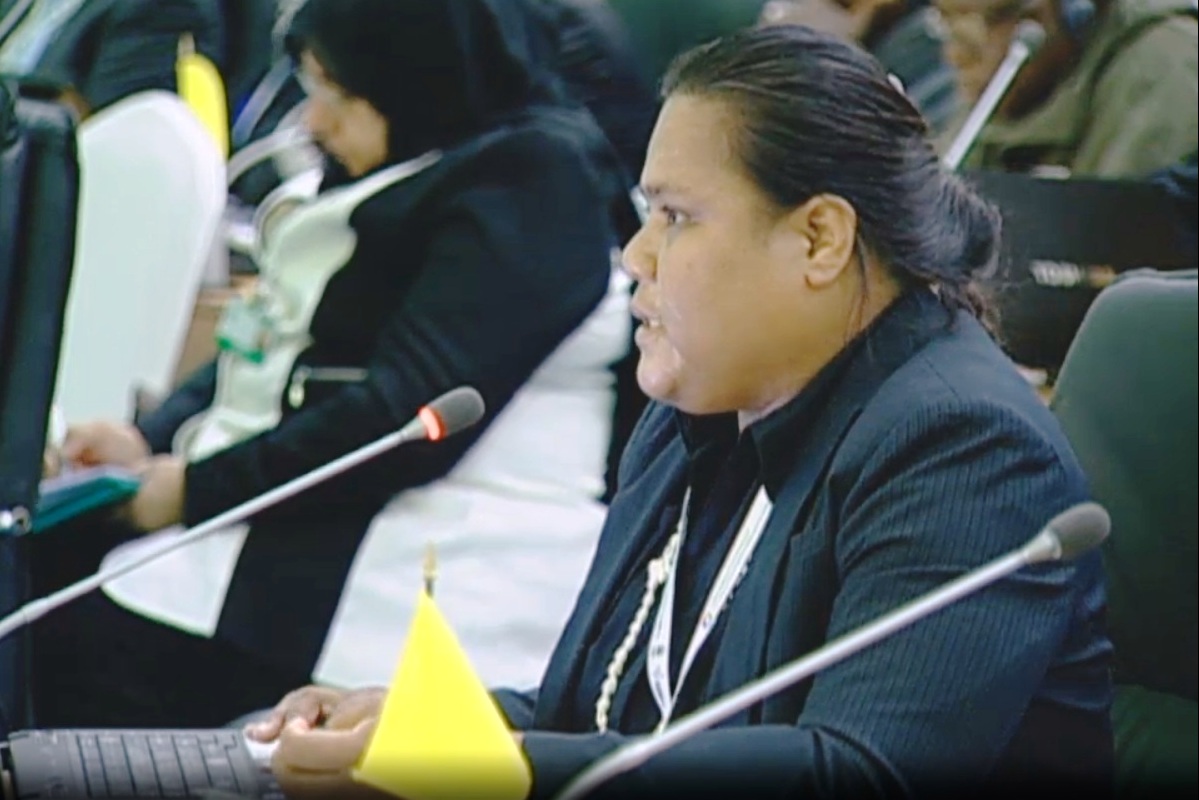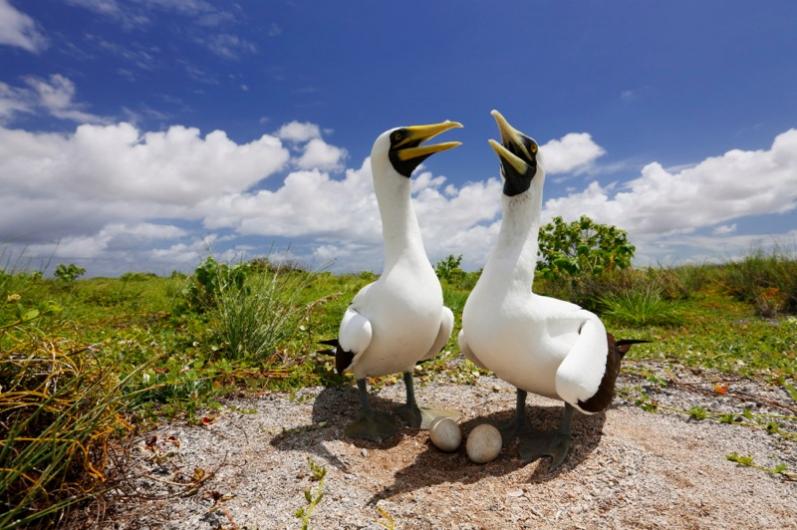
Biodiversity Conservation
 Miss Ratita Bebe of Kiribati making a statement at the CBD COP12 in Pyeongchang, Korea
Miss Ratita Bebe of Kiribati making a statement at the CBD COP12 in Pyeongchang, Korea"As people born and raised on islands we are fully aware of the impacts caused by invasive alien species to our food security, to our health, our economic development and aspirations, and to our biodiversity and ecosystem function," presented Ms. Ratita Bebe, of Kiribati.
The Aichi Biodiversity Target nine aims to have invasive alien species and pathways identified and prioritised with priority species controlled or eradicated, and measures in place to manage pathways to prevent their introduction and establishment by the year 2020.
At the 12th Conference of the Parties to the Convention on Biological Diversity (CBD COP 12), the Pacific islands shared the actions already underway in our region to achieve these targets.
The "Guidelines for Invasive Species Management in the Pacific" is in use to guide all partners within the region, and a regional project "Prevention, control and management of invasive species in the Pacific islands" is contributing to efforts to prevent and manage invasive alien species.
The islands of, Niue, Tonga and Vanuatu have completed National Invasive Species Strategy and Action Plans while other countries including Kiribati and Palau are reviewing and updating theirs to ensure they are in line with national biodiversity strategies.
It was fitting that Kiribati presented the statement on invasive alien species to over 190 governments to encourage a path forward and halt the loss of biodiversity.
Kiribati is made up of 33 coral islands divided into three groups, the Gilbert Islands, the Phoenix Islands and the Line Islands - of these 33 islands, 21 are inhabited. Kiribati contains one of the largest breeding colonies of seabirds in the world, formerly supporting an estimated 25-plus million birds of 18 species. Globally it still contains the critical populations of two endangered seabirds.
 Seabirds of Christmas Island, Photo by Yukihiro Fukuda
Seabirds of Christmas Island, Photo by Yukihiro FukudaOverall the seabirds have declined in the past century and more rapidly in the past 20 years with only a fraction of former numbers of some species still breeding, a decline which can be attributed to invasive species.
To address this Kiribati has a number of initiatives underway.
Not only is the island nation forming a National Invasive Species Strategy and Action Plan, Kiribati is also conducting a baseline survey of invasive species and their pathways, including high priority biodiversity areas.
An activity on Tarawa and two other islands in the Gilbert group will help eradicate myna birds, an invasive species and feasibility studies for invasive species management on un-inhabited islands within the Line islands group is also underway.
"The introduction of invasive alien species in the Pacific, whether intentional or un-intentional, is a serious threat to the integrity of our ecosystems and our livelihoods. The introduction of new invasive alien species, as well as the on-going harm by existing invasives will continue to degrade our island biodiversity," presented Ms. Ratita Bebe at the CBD COP 12.
While Kiribati and the Pacific islands region are working to address the invasive alien species in their islands, the issue has been realised as a priority by the Leaders of the Pacific during their 45th Pacific Island Forum Leaders meeting in Palau earlier this year.
The Marshall Islands, Niue, Palau and Tonga have allocated USD1 million or more from the 6th replenishment cycle funding allocation from the Global Environment Facility towards management of invasive alien species, with most commitments contributing to a regional invasive species management project led by the Secretariat of the Pacific Regional Environment Programme (SPREP).
Noting this, more support is always needed and has been called upon from the global community by Ms. Bebe.
"We call on partners, donors, governments, key organisations and the Secretariat of the Convention on Biological Diversity to partner and collaborate with us and support our efforts to ensure the achievement of Target 9 on invasive alien species."
Kiribati is one of 14 Pacific island countries that are a party to the Convention on Biological Diversity. They are currently in Korea attending the CBD COP 12 with delegates from the Federated States of Micronesia, Fiji, Kiribati, Marshall Islands, Palau, Papua New Guinea, Samoa, Solomon Islands, Tonga, Tuvalu and Vanuatu.
The CBD COP 12 is held from 6 - 17 October, 2104.